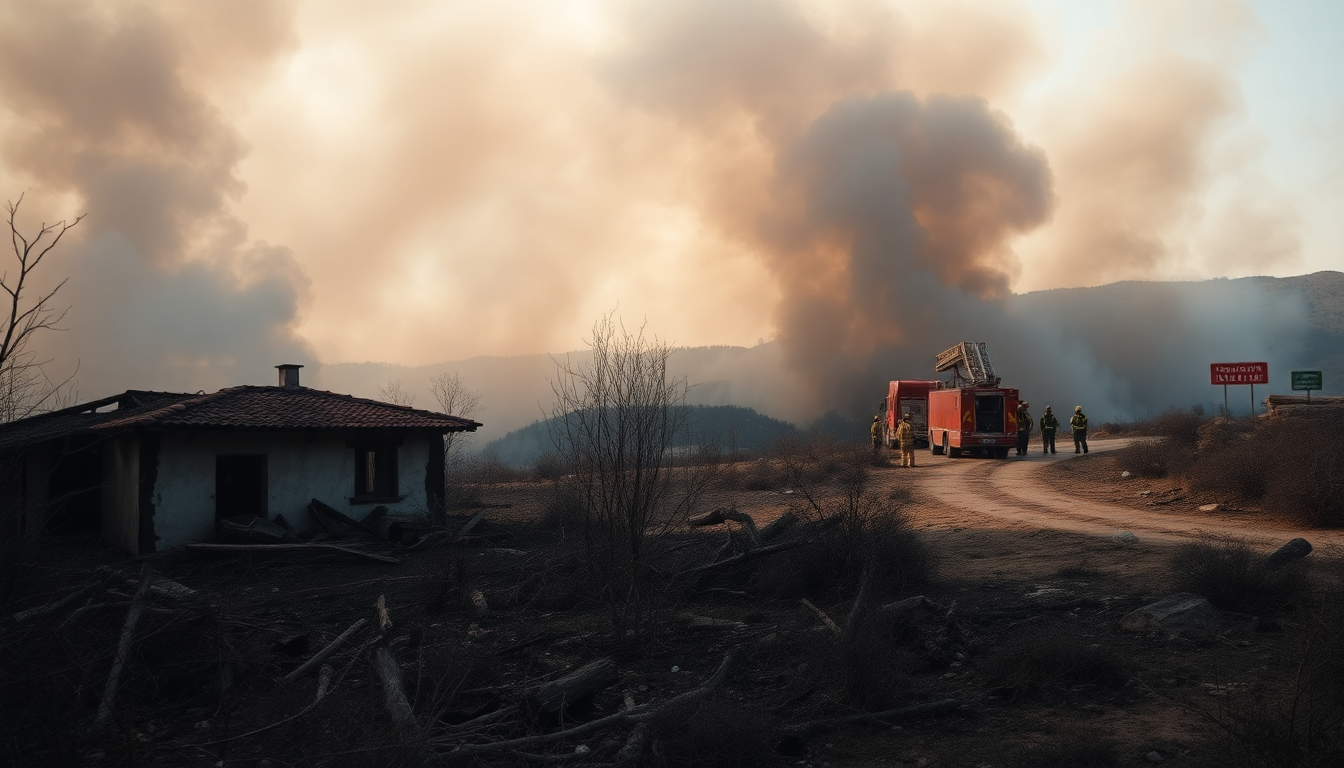Table of Contents
Recently, the province of Izmir, Turkey, has been battling devastating wildfires that have forced the evacuation of numerous villages and neighborhoods. With winds howling at speeds of 40-50 km/h, the situation has escalated into a major concern for both local authorities and residents. As firefighters tirelessly combat these relentless blazes, the repercussions on the region’s infrastructure and tourism industry are already becoming evident. How is this affecting the community and the economy?
The Current Situation and Evacuations
Local officials report that the wildfires have prompted the evacuation of four villages and two neighborhoods, while firefighters continue their crucial efforts to contain the flames. In a recent update, Forestry Minister Ibrahim Yumakli stated that over 1,000 personnel, along with helicopters and firefighting aircraft, are engaged in this battle. Unfortunately, operations at Izmir Adnan Menderes Airport have been suspended due to the fire’s close proximity, disrupting travel plans for many. The media coverage paints a stark picture, showcasing images of smoke engulfing charred landscapes and emergency teams employing everything from tractors to helicopters to fight the fires.
The fires ignited on a Sunday, rapidly spreading between the districts of Seferihisar and Menderes, fueled by winds that reached a staggering 117 km/h. Governor Suleyman Elban confirmed that five neighborhoods in Seferihisar have been evacuated as flames dangerously approach residential areas. In a heart-wrenching effort to protect their homes, residents of the village of Urkmez have resorted to clearing trees to create firebreaks. What would you do in such a situation?
Wider Implications of the Fires
Compounding the disaster, another fire has broken out at a landfill site in Gaziemir, threatening nearby woodlands and the Otokent industrial zone, which houses several car dealerships. The situation is dire: footage reveals one dealership engulfed in flames, highlighting the urgent need for effective firefighting measures. As wildfires increasingly ravage Turkey’s coastal areas, experts attribute this trend to rising temperatures and the drier summers attributed to climate change. Isn’t it alarming how interconnected these issues are?
This troubling trend is not confined to Turkey. Southern Europe is also grappling with extreme heatwaves and wildfires. In France, for instance, wildfires have erupted in the Corbieres region, leading to the evacuation of campsites and historic sites. Similarly, Greece has faced its own challenges with forest fires threatening coastal areas south of Athens, resulting in more evacuations. Could this be the new normal for our summers?
Long-Term Considerations and Climate Change
The wildfires in Izmir serve as a stark reminder of the increasing frequency and intensity of such disasters. It’s becoming crucial for policymakers and communities to consider long-term strategies for prevention and response. With rising temperatures and shifting climate patterns, we need to rethink how we approach land management, emergency preparedness, and our investment in firefighting resources.
As we face the ongoing challenges posed by climate change, prioritizing resilience in vulnerable regions is essential. This includes investing in sustainable practices, enhancing community awareness, and developing robust emergency response plans. The situation in Izmir is not just a wake-up call; it’s a rallying cry for stakeholders at all levels to come together and combat the looming threat of wildfires and their devastating consequences. Are we ready to take action before it’s too late?


